Staff rotation & research stays
In the TRR 266 it is highly important for us to support our young researchers (PhDs and Postdocs) in building their skills. So one of the many advantages of being a member of the TRR 266 is the possibility of staff rotation: young researchers are able to transfer to one of our participating universities for a couple of months. They also have the opportunity to visit another university abroad for a research stay. On this page they share their learnings and experiences.
Sebastian Hinder

Sebastian Hinder, PhD student at Paderborn University, spent 3 months at the IÉSEG School of Management in Lille as part of a TRR 266 research stay abroad.
The IÉSEG School of Management is a reputable business school with a strong accounting department. I was really excited when my host professor – Christof Beuselinck – invited me to join the department. Christof’s research in accounting and taxation closely aligns with my own, and this visit represented a great opportunity to develop my solo-authored research project under his supervision.
During my time at IÉSEG, I participated in a large variety of scholarly activities to better immerse myself into the department’s academic life. For instance, I presented one of my projects and also discussed another project at IÉSEG’s annual Accounting Research Day. I further broadened my exposure by attending the European Accounting Review (EAR) Conference on IÉSEG’s Paris campus, where I was able to listen to inspiring, well-developed research projects that have a high likelihood of being published at the EAR. On campus, I regularly participated in the department’s accounting research seminars and Brown Bag series, also presenting an early-stage research idea in the latter. Outside of formal events and seminars, I held several one-on-one discussions with local faculty members, whose feedback were essential in sharpening my ongoing projects.
The most valuable lessons I learned were: Don’t be daunted; people are genuinely eager to help you. Reach out to people, be open to constructive criticism, solicit feedback, and hone your ability to present research in a clear, engaging, and accessible way.
I strongly recommend undertaking a research stay to anyone eager to exchange ideas, advance their projects, and immerse themselves in a new academic environment. The combination of adapting to a different setting, engaging with new colleagues, and carving out dedicated time for your work creates an ideal atmosphere for both academic progression and personal growth.
Besides all the great research seminars and conferences I was able to attend, a true highlight of my visit was the exceptional camaraderie among IÉSEG’s PhD students – both local and visiting. From day one, they welcomed me wholeheartedly – inviting me to local restaurants and bars, showing me Lille, and integrating me into their community. Their warm hospitality not only enriched my professional experience but also made my stay personally rewarding.
Another highlight was the local French and Flemish cuisine. The local cheese that is popular in out around Lille is called Maroilles. It is a staple in almost every local dish. It has a very strong and distinct smell, which some people love and others hate. Personally, I love it, and it confirmed a universal rule to me: The stinkier the cheese, the better it tastes.
A fellow PhD student from IÉSEG told me there’s a saying about Lille: “You cry twice when living there – first when you move there, and then when you have to leave.” I can’t subscribe to the first sentiment, but I most definitely subscribe to the latter!
Henning Giese
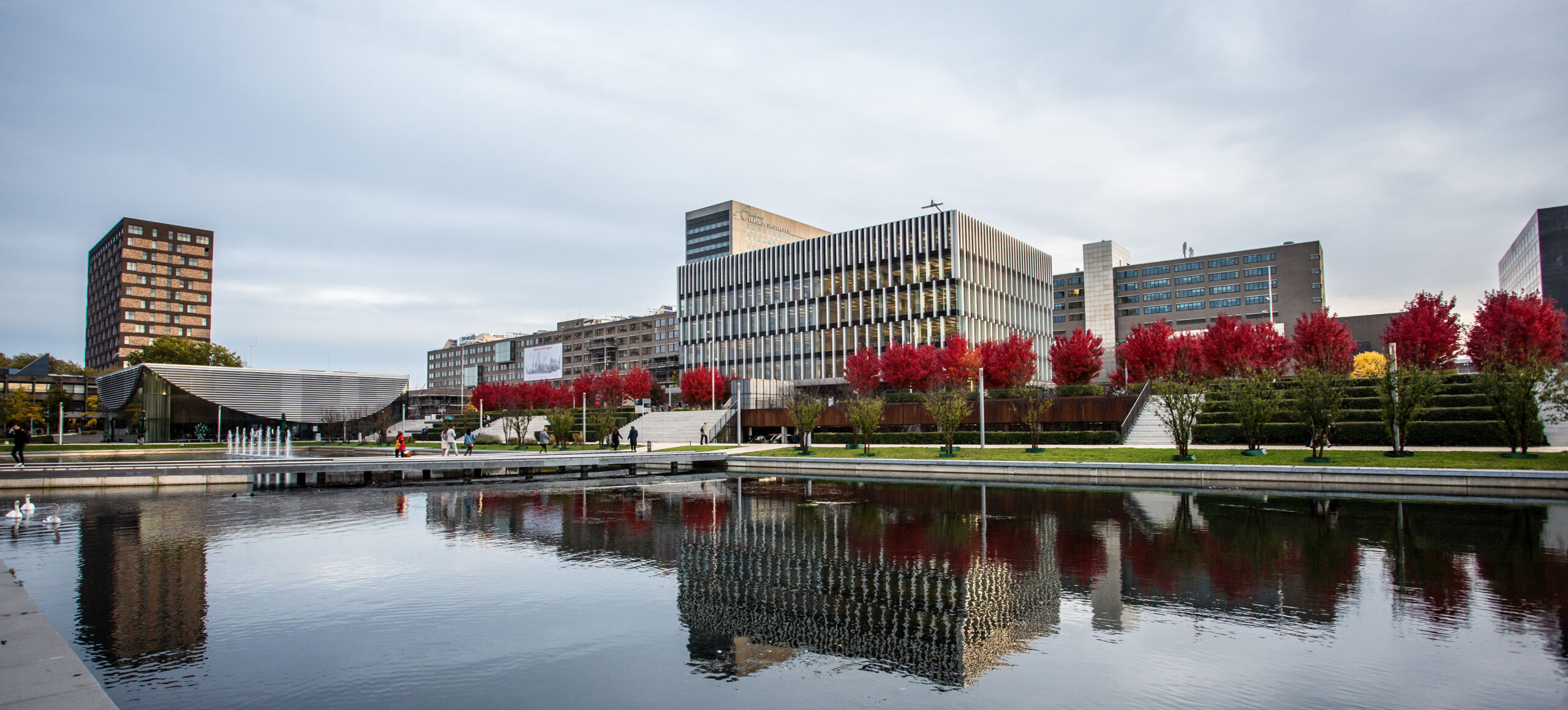
Henning Giese, Post Doc from Paderborn University, spent 3 months at Erasmus School of Economics in Rotterdam as part of a TRR 266 research stay abroad.
I wanted to conduct a research stay in Rotterdam, as the Accounting Section at the Erasmus School of Economics is one of the leading accounting groups in Europe. Jointly with the accounting scholars at the Rotterdam School of Management they built a large group of researchers in my area. Furthermore, I wanted to do a project together with Jochen Pierk and Yijun Li who both are at the Accounting Section at the Erasmus School of Economics.
During my time there, I presented at the Accounting Section’s research retreat a joint project with Kim Alina Schulz, Caren Sureth-Sloane and Dan Lynch titled: “The Effects of Tax Reform on Labor Demand within Tax Departments”. Furthermore, I attended several seminars and conferences, e.g., the Dutch Taxation Workshop, the 3rd Tinbergen Institute Public Economics Workshop, and a conference on the topic “The Netherlands a Tax Paradise? Complexities of Corporate Tax Avoidance”.
Working alongside these researchers has sparked innovative ideas and opened new avenues for research. So, I would recommend a research stay generally and more specifically at the Erasmus School of Economics in Rotterdam, as it is a very friendly, cooperative, and supportive environment. The stimulating discussions during research seminars, the engaging conversations at dinners, and the opportunity to present at the internal research retreat were incredibly enriching and memorable. I always felt welcome, and the effort to create an inclusive environment truly stood out. My best experiences there included among other things staying in a capsule hotel and driving with a water taxi.
Vincent Giese

Vincent Giese, PhD student from the University of Mannheim, spent 4 months at Harvard Business School (HBS) as part of a TRR 266 research stay abroad.
I chose the Accounting & Management unit at Harvard Business School for two main reasons: First, because of shared research interests. Many faculty members are leading experts in corporate governance, which is my main field of interest. Second, I have an ongoing research project with HBS faculty and wanted to use the time during my visit to advance this project.
During my visit, I participated in one PhD course: a seminar in Financial Reporting, Capital Markets, and Corporate Governance, taught by Prof. Aiyesha Dey. In addition, I also participated in Brown Bags and Research Seminars at HBS. Since there is a close collaboration between the schools in the Boston area, I was also able to visit the MIT research seminar and I participated in the student-organized Boston Accounting Student Symposium, a forum in which I got to know many of the Boston-based PhD Students in accounting.
During my time at HBS, one of the most valuable lessons I learned is the immense value of fostering strong connections between academia and practice. The researchers at HBS truly emphasize the real-world managerial and regulatory implications of their work, inspiring me to think more deeply about this in my own work.
I would certainly recommend a research visit to all of my colleagues. It is an amazing opportunity to broaden your perspective, get new inspiration, expand your network, as well as to learn and grow as a person and a researcher. I am very thankful to my PhD advisor, the TRR 266 and the Fulbright Schuman program for their support.
Yasmin Hoffmann

Yasmin Hoffmann, PhD student from University of Mannheim, spent 4 months at Columbia University as part of a TRR 266 research stay abroad.
I chose CBS for its exceptional faculty and PhD community, which includes a strong focus on analytical research methods in accounting. My work explores the use and presentation of financial and non-financial information in corporate settings through analytical modeling, making CBS an ideal fit. The opportunity to collaborate in person on a joint paper with my co-authors at CBS, rather than working remotely, was another significant advantage. Additionally, Columbia’s reputation as a leading institution and its location in New York City provided the perfect environment to advance my academic goals while being able to make the most of the unique opportunity to live in Manhattan for four months.
I participated in a variety of academic activities, including research seminars, brown bag presentations, and reading groups. Additionally, I attended the Burton Accounting Conference at CBS and research seminars at NYU. These experiences offered valuable insights into the latest developments in research and facilitated thought-provoking discussions with faculty and PhD peers.
The most valuable lesson I gained from my time at CBS was the importance of openness and active engagement with colleagues. The department’s welcoming atmosphere fostered meaningful conversations, sparked new ideas, and even led to new collaborations.
My experience at CBS was invaluable, both academically and personally. It allowed me to connect with exceptional researchers, share and refine my work, and gain new perspectives that have already influenced my research. It was also an unparalleled opportunity to expand my network and draw inspiration from a vibrant academic environment. I recommend a staff rotation or a stay abroad to anyone seeking to broaden their horizons and deepen their engagement with the academic community.
Furthermore, I had many memorable experiences during my stay. Living in New York City was incredible, especially during the festive Christmas season, which added a magical touch. Attending basketball, ice hockey, and baseball games offered a glimpse into the local sports culture. A particular highlight was sharing an office with the other visiting PhD students from various countries. The connections we formed were invaluable — we exchanged ideas, enjoyed meaningful conversations, and explored the city together after work. The combination of academic engagement and cultural experiences truly made this visit unforgettable.
Keno Buß
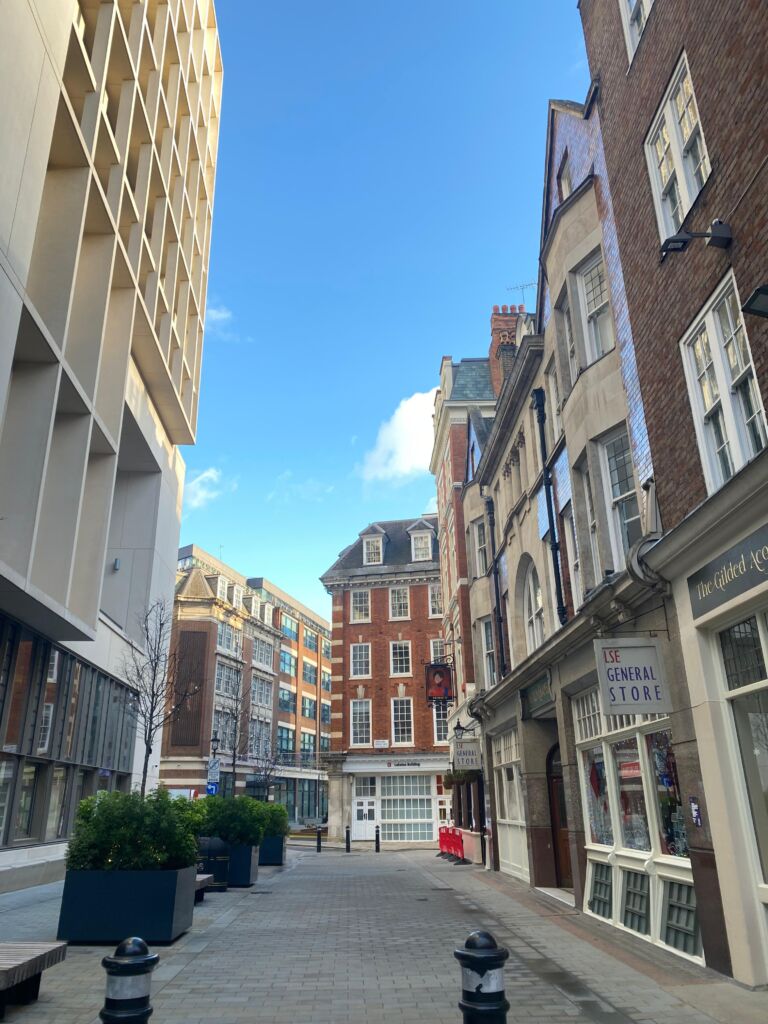
Keno Buß, PhD student from Goethe University Frankfurt, spent 3 months at London School of Economics (LSE) as part of a TRR 266 research stay abroad.
I chose the London School of Economics (LSE) for my research stay because of its renowned faculty, whose research interests align closely with my work on decision-making in capital markets. I had the chance to interact with them at conferences before my stay and experienced the quality of their feedback and discussions. Additionally, being in London offered a unique environment to engage with a broader academic and professional network.
I benefited greatly from the highly active and supportive faculty during my stay. Almost weekly research seminars offered insights into the current work of leading academics and triggered interesting discussions. Further, the work-in-progress seminars at LSE provided an excellent platform to present my research and receive constructive feedback from the faculty. Leveraging their location, the LSE also held a junior accounting conference together with the London Business School, which was a great opportunity to connect with scholars beyond the LSE faculty.
One of the most valuable lessons I learned is the importance of actively engaging with the local research community. Being prepared to discuss both your own projects and those of others at any time—whether it is in a formal seminar or a conversation at the coffee machine—can lead to valuable discussions. People are genuinely passionate about research, and by showing initiative, you can tap into their insights and expertise. In my case, those discussions especially helped to improve the framing of new projects and the connection to other strands of literature.
I would absolutely recommend a research stay, as engaging with different viewpoints broadens the perspective on current research while generating ideas for future projects. Research stays also help build closer connections with fellow researchers and a network that benefits everyone involved. I would recommend anyone considering a stay to make the most of social events—they are a great way to connect with others in an informal setting and build lasting relationships.
My best experience was the overall atmosphere in the department and the strong sense of community among colleagues. The department’s social events made it easy to connect with the department, especially with the former PhD students. Whether it was enjoying dinner together, playing badminton in the evenings, or brainstorming research ideas over a few drinks in the pub. These moments combined the professional and the personal, making them one of the highlights of my stay.
Katharina Weiß
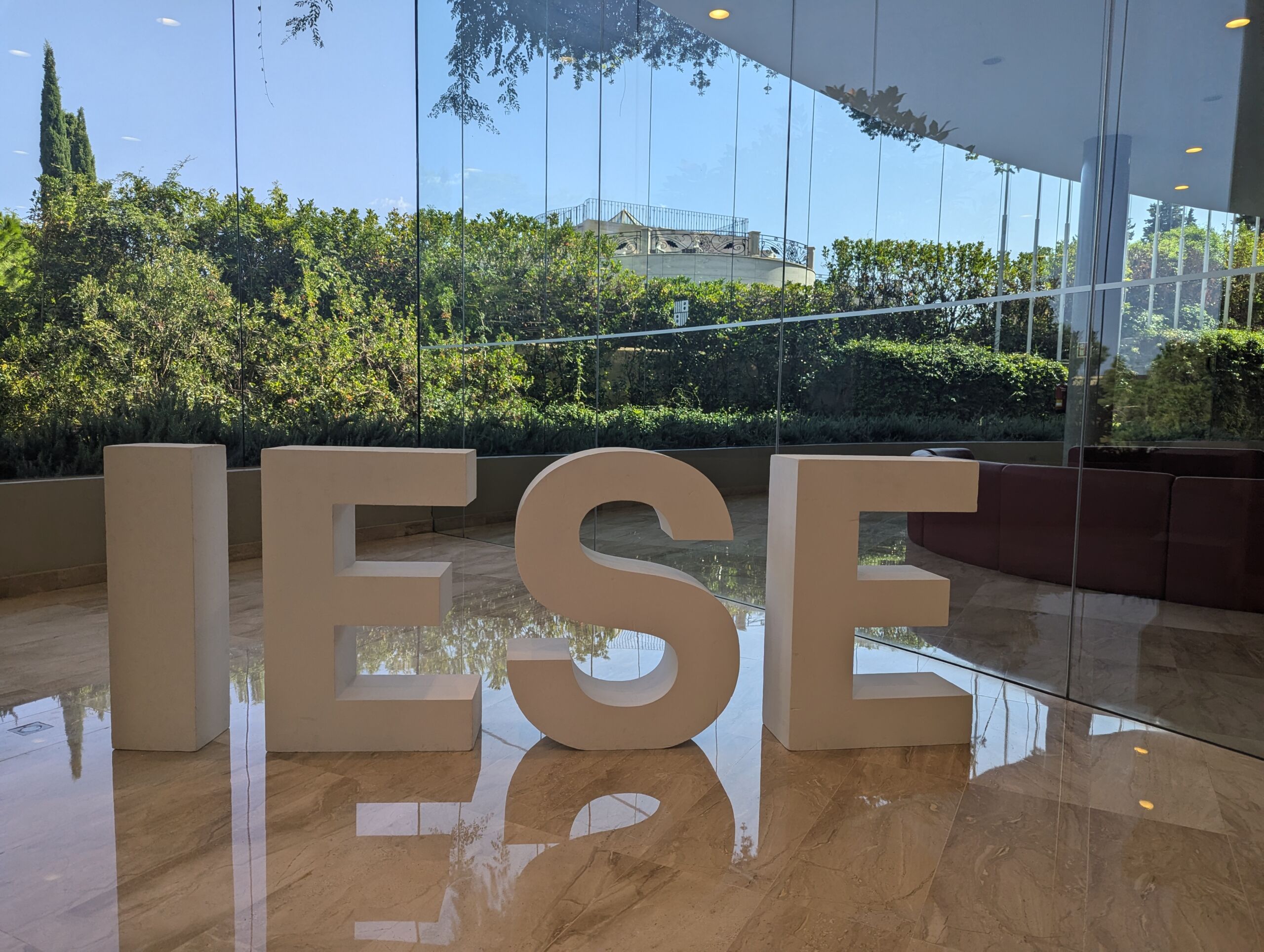
Katharina Weiß, PostDoc at LMU Munich, spent 2 months at IESE Business School in Barcelona as part of a TRR 266 research stay abroad.
I chose IESE Business School in Barcelona primarily because of its exceptional faculty, who are renowned experts in sustainability accounting research. The school has a strong reputation for fostering a collaborative and innovative academic environment.
During my time at IESE, I enjoyed focusing on my ESG papers. I took full advantage of the opportunity to receive constructive feedback during the brownbag at the IESE and one-to-ones. Additionally, I participated in workshops, which allowed me to engage in meaningful discussions with faculty and peers. These interactions were invaluable, providing fresh perspectives and enhancing the quality of my research. Overall, this experience has been instrumental in refining my work and broadening my academic network.
I would highly recommend undertaking a research stay to colleagues, and here’s why: A research stay offers a unique opportunity to immerse yourself in a new academic environment, allowing you to gain fresh perspectives on your work. It provides the chance to collaborate with leading experts in your field, receive diverse feedback, and access resources that may not be available at your home institution. Personally, I found my research stay to be incredibly valuable for refining my analyses, expanding my academic network, and starting a new research project. Beyond the academic benefits, it also fosters personal growth by challenging you to adapt to new settings and cultures, ultimately enriching both your professional and personal life. For anyone looking to enhance their research, broaden their horizons, and build meaningful connections in the academic community, a research stay is an invaluable experience.
My favorite experience was the 1 p.m. lunch break with the faculty. It is a daily tradition to gather for lunch, followed by a coffee outside in the sunny weather. These moments were not just about taking a break from work—they were filled with lively conversations that ranged from academic debates to sharing stories about life in Barcelona.
Frederik Kohl
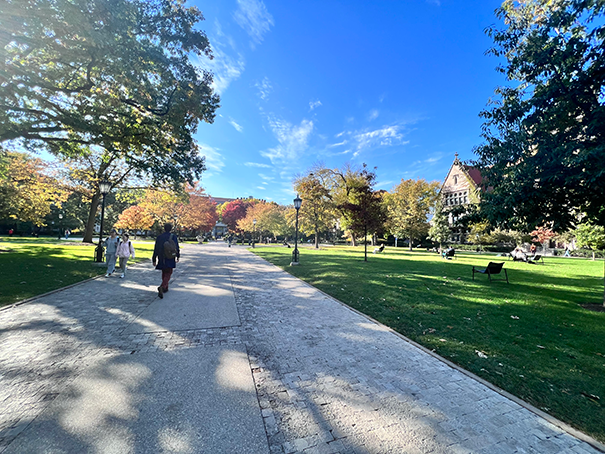
Frederik Kohl, PhD student from the University of Mannheim, spent 9 months at Chicago Booth School of Business as part of a TRR 266 research stay abroad.
Given my research focus on the regulation of financial institutions, ESG reporting and sustainable finance, I chose the Chicago Booth School of Business because of its leading expertise in these fields and the many distinguished accounting and finance scholars working on related topics. I also sought to expose myself to an intellectually stimulating environment and Chicago Booth has a long-standing history of pushing boundaries in scientific research and pioneering many of the research trends in the accounting community. Such a dynamic setting has proven to be an ideal place to foster new research ideas and receive invaluable feedback on existing work. For this reason, a research stay at Chicago Booth was strongly suggested to me by former PhD students and faculty in Mannheim who had themselves visited UChicago before.
I aimed to maximize my exposure to the Chicago way of conducting research by actively participating in two accounting PhD classes: Disclosure, Reporting and Transparency: Analysis in Markets and Regulation (taught by Christian Leuz) and Accounting for Private Entities & Non-investor Stakeholders (taught by Anna Costello and Michael Minnis). I also audited classes on microeconomics and econometrics which helped sharpen my methodological skills and economic intuition. To advance my own research, I had the chance to present in the accounting research workshop and presented biquarterly in the accounting PhD lab class. One of the highlights of my stay were also the many US conferences I was able to attend: the FARS Midyear Meeting in Denver, the Chicago-Minnesota Theory Conference and the JAR Conference in Chicago.
I found it extremely valuable to expose myself to the US academic setting and would strongly recommend for those who wish to pursue an academic career to do the same. The breadth and interdisciplinary nature of the faculty meant there was always a specialist available on campus to approach for questions. What also shaped my perception of research more generally was the faculty’s strong emphasis on the economic question when doing research and thinking thoroughly about the underlying economics.
One of the most enjoyable experiences during my stay was coming into the Harper Center and meeting fellow PhD students or faculty in the winter garden. These chance encounters always sparked interesting conversations about what people are currently working on and the different activities taking place on campus (oftentimes there were sheer too many to attend). During these interactions, I also sensed people’s strong excitement and extreme diligence in doing research at Chicago Booth.
Jonas Wessel
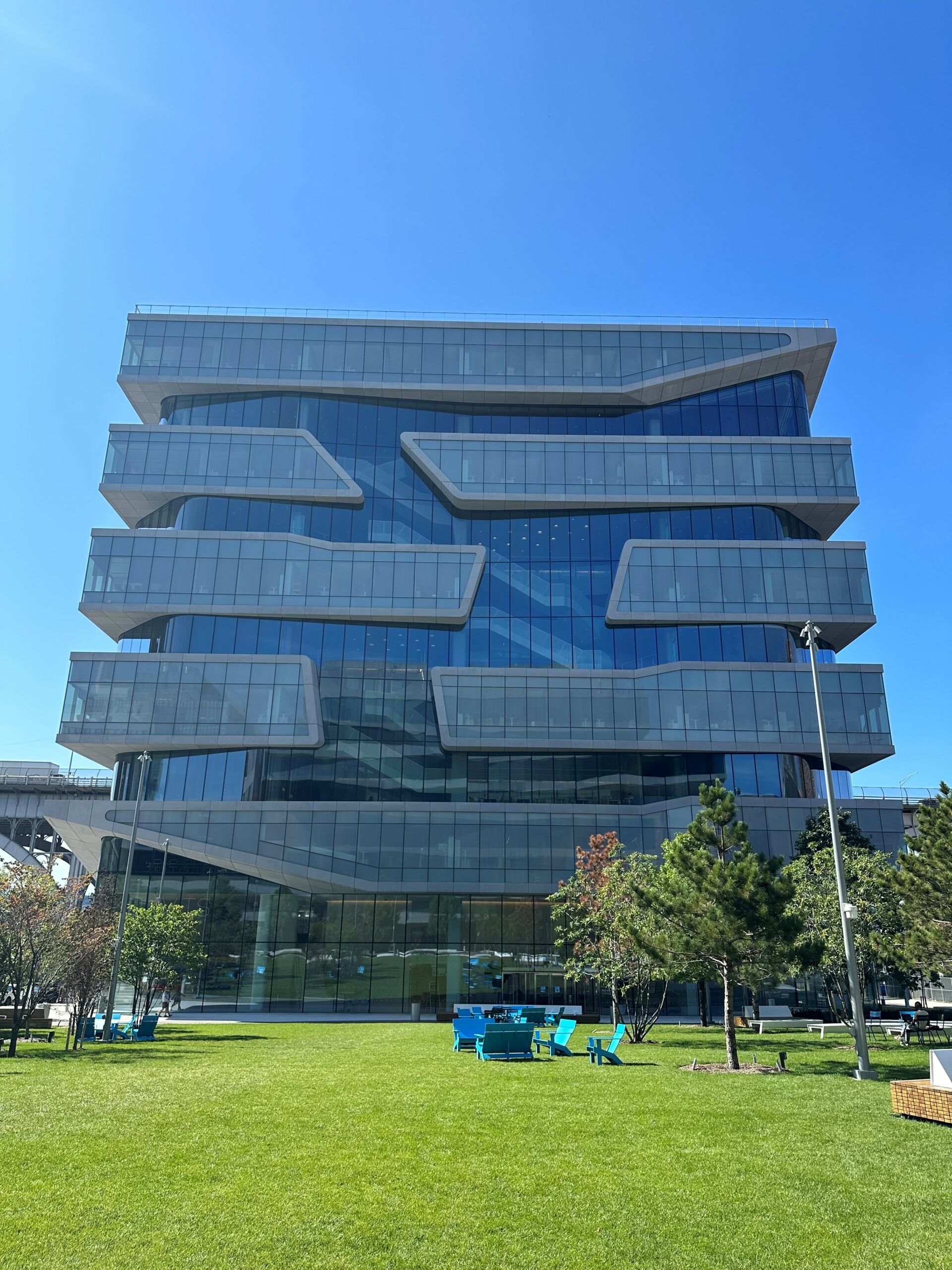
Jonas Wessel, PhD student from Goethe University Frankfurt, spent 9 months at Columbia University as part of a TRR 266 research stay abroad.
There are many reasons why I chose to go to Columbia Business School: Firstly, it is renowned for its strong faculty, many of whom are leading researchers in the field of accounting. Working with distinguished professors (especially Thomas Bourveau) provides invaluable mentorship, insights, and networking opportunities. Columbia Business School also offers a stimulating research environment with access to extensive resources, including databases, seminars, workshops, and conferences, which significantly enhanced my research capabilities and exposure. Located in New York City, the university provides unique opportunities to engage with financial institutions especially sell-side financial analysts, which is my focus of research. In addition, living in New York for 9 months is definitely a plus!
During my stay, I participated in PhD courses of Shiva Rajgopal (Research on Regulation and Accounting Institutions), Laura Veldkamp (Information in Financial Markets), and Xavier Giroud (Empirical Corporate Finance). On top of that, I was able to attend the Burton Accounting Conference, the Junior Accounting Research Conference at Columbia, and the 4-University Conference at NYU. I was also able to visit Wharton School for a research workshop. Overall, there were almost weekly research presentations, brown bags, and reading groups at Columbia, in which I participated. I also took up the opportunity to present my research twice in Columbia’s brown bag seminar.
One of the most valuable lessons I learned was how engaging with scholars from various disciplines (e.g. finance and economics) enriched my understanding of accounting issues and introduced me to innovative methodologies and frameworks. I would absolutely recommend a research stay abroad as it continuously develops your skill set due to the various PhD courses available. Additionally, the new environment gives you a fresh perspective which helped me to develop new research ideas. By presenting and discussing my research projects with the faculty, I received valuable feedback for my papers. And lastly, an extensive network can be beneficial for future career prospects.
The best experience during my stay was coming into the office in Ney York City and the people I shared it with. I shared one of the university’s best conference rooms on the 11th floor with a view of the Hudson River with visiting PhD students from Scotland, the UK, Norway, Italy, the Netherlands, and Germany. We had fun at the office every day, enjoyed lunch together, went for drinks after work, attended tennis and baseball games, and even watched the Super Bowl there after work in the conference room.
Ann-Kristin Großkopf
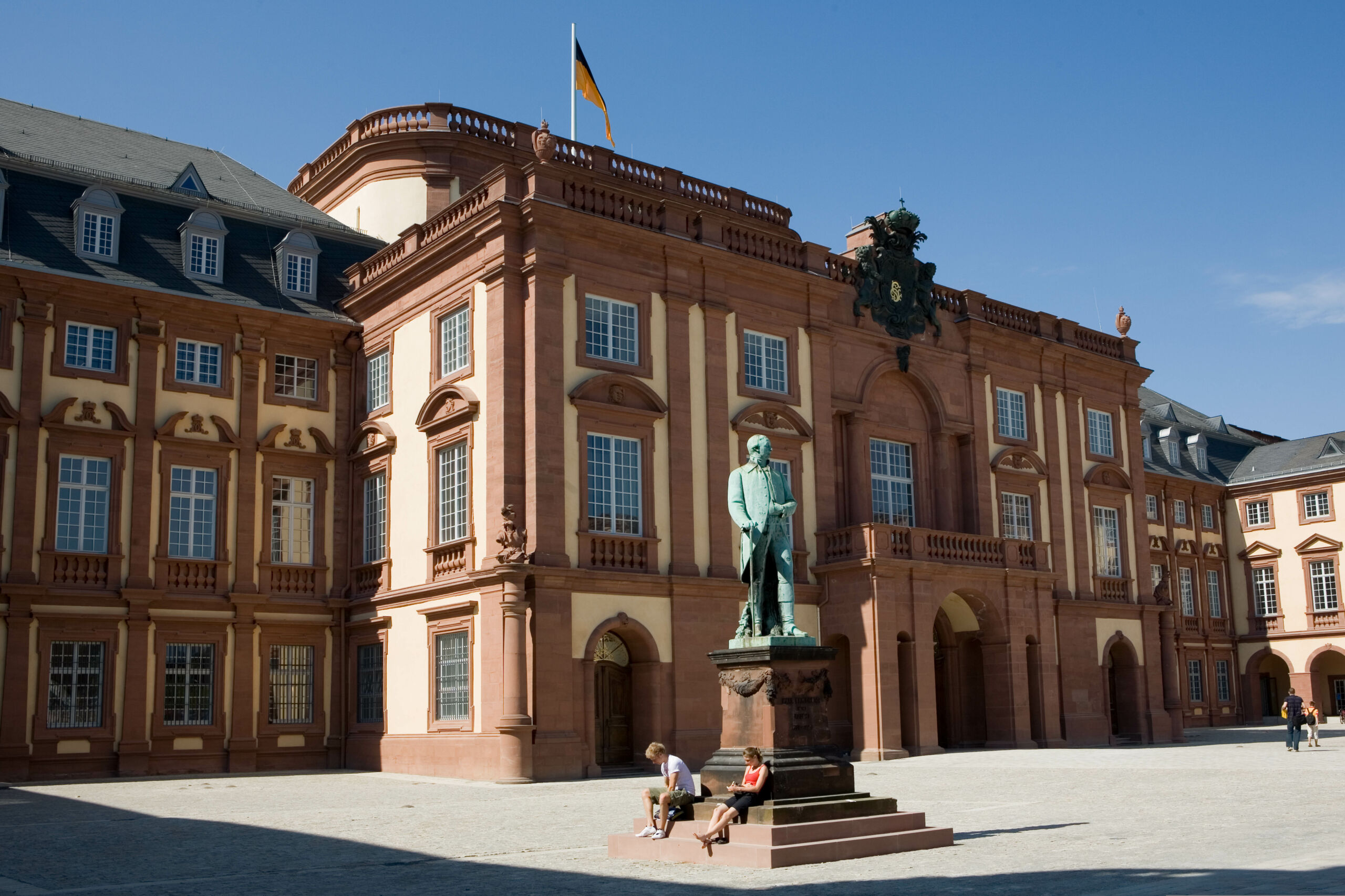
© Stefanie Eichler
Ann-Kristin Großkopf, Postdoc from LMU Munich, spent seven weeks at the University Mannheim as part of the TRR 266 staff rotation program.
Due to the overlap in research interests in sustainability, (e.g. carbon accounting) I chose the Mannheim Institute for Sustainable Energy Studies (MISES) at the University of Mannheim for my staff rotation. Further, it is a great advantage that the University of Mannheim brings together a multitude of institutes and a diverse range of methodologies in accounting research, enhancing collaboration and innovation in the area of sustainability. In my seven weeks in Mannheim, I was also able to extend connections I had made at other workshops such as during the female mentoring.
During my staff rotation, I participated in various research seminars and also presented my own early-stage paper, on which I got some great feedback. It was great to connect with my TRR 266 colleagues at work and in my free time. In my last week in Mannheim, the MISES team took me to one of the legendary Schneckenhof events called “Jazz im Schloss”, which I enjoyed very much.
MISES has a great combination of people with different backgrounds, not just accounting. Bringing these different perspectives together is incredible valuable when doing research in sustainability and makes you look at your research projects from a different angle. In general, I would highly recommend a staff rotation to fellow colleagues to form new connections and because a change of your surroundings and new input can be very productive. I would like to thank Stefan Reichelstein and his team at MISES for hosting me in Mannheim.
Kim Alina Schulz
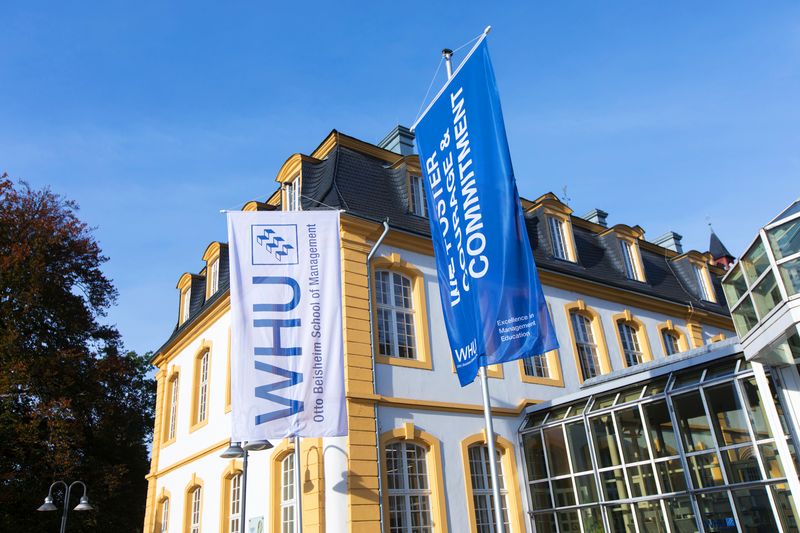
© WHU
Kim Alina Schulz, PhD student from Paderborn University, spent one month at WHU – Otto Beisheim School of Management as part of the TRR 266 staff rotation program.
I selected WHU for my staff rotation due to the presence of distinguished researchers renowned for their exceptional quality. Previously, my engagement with these researchers was somewhat brief, thus I am keenly anticipating the opportunity to forge stronger relationships and absorb valuable methodological expertise from them. During my time at WHU I participated in a brown bag by an external researcher and received a short WHU campus tour as well as a city tour around Koblenz by doctoral students and junior professors. Besides insights into the research of the WHU-located researchers, I got the opportunity to present one of my research projects and received some valuable feedback from their team of highly experienced researchers that improved my study. I would gladly recommend participating in a staff rotation to build connections with new researchers and to benefit from knowledge spillovers between various TRR 266 projects. The insights into other research projects have helped me to think outside the box to further develop my research. Even though I only spent a short time at WHU, I was able to apply some relevant knowledge from my time there to my daily work at Paderborn University. I am grateful for the open and warm way everyone welcomed me, and I wish them all the best for their future and look forward to seeing them again in person soon.
Vincent Giese
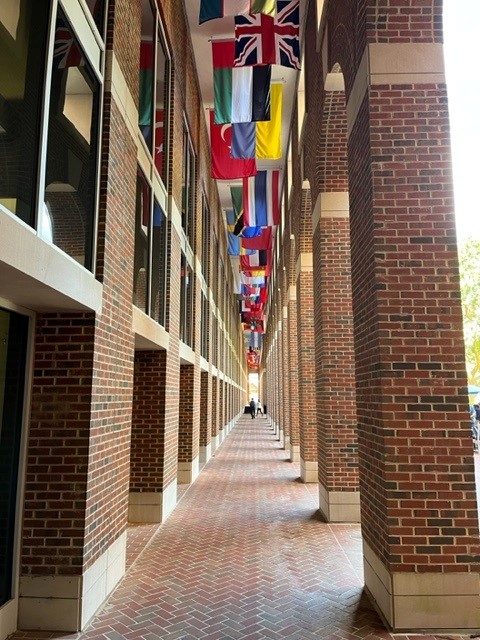
Vincent Giese, PhD student from Mannheim University, spent 5 months at the University of North-Carolina at Chapel Hill as part of a TRR 266 research stay abroad.
I chose the Accounting Group at UNC because of its diversity in terms of research interests. Although not particularly large, the group does research in Managerial Accounting, Financial Accounting, Tax, Banking and more… UNC therefore was the ideal place for me to learn about all these facets of accounting research. In addition, I wanted to visit a University in the United States to experience the way in which the academic system works there.
I took two PhD courses, one on Accounting and Capital Markets (taught by Prof. Wayne Landsman) and one on Information in Capital Markets (taught by Prof. Robert Bushman). I also participated in Brown Bags and Research Seminars at UNC. Due to the close partnership with the Duke Accounting Department, I was also able to visit their research seminar. One of the highlights of my time at UNC was the UNC-Duke Fall Camp Accounting Conference. It was great to get to know many of the UNC and Duke alumni and many more accounting researchers that were invited.
One of the most valuable lessons I learned during the stay is how great intercultural exchange is for a department. UNC has a tradition of hosting international visitors and we were six in the accounting department for the most time during the semester. Together with the local PhDs we were a very diverse group with very different research interests and personal backgrounds. That made the seminars and courses so much fun.
I would definitely recommend a visit or staff rotation to every one of my colleagues. It is just such a valuable experience to get out of your regular environment and meet new people. Also, it is an amazing opportunity to sharpen your research focus and build a stronger network in our community. I am so thankful to my PhD supervisor and the TRR 266 for supporting me in this visit and giving me the opportunity to have all these great experiences.
I had a range of great experiences during my stay. In particular, I enjoyed going to College Football and Basketball Games. It is just so nice to see how everybody identifies with their university and supports their team during gameday. I also had a very fun time at the North Carolina State Fair with a couple of PhD colleagues. We were particularly surprised by the apparent tradition to deep-fry every sort of food imaginable (from pickles to entire apple pies). We settled on a collection of deep-fried sweets (e.g. Oreos, Snickers). Definitely a special experience, not sure I would do it again.
Christian Sofilkanitsch
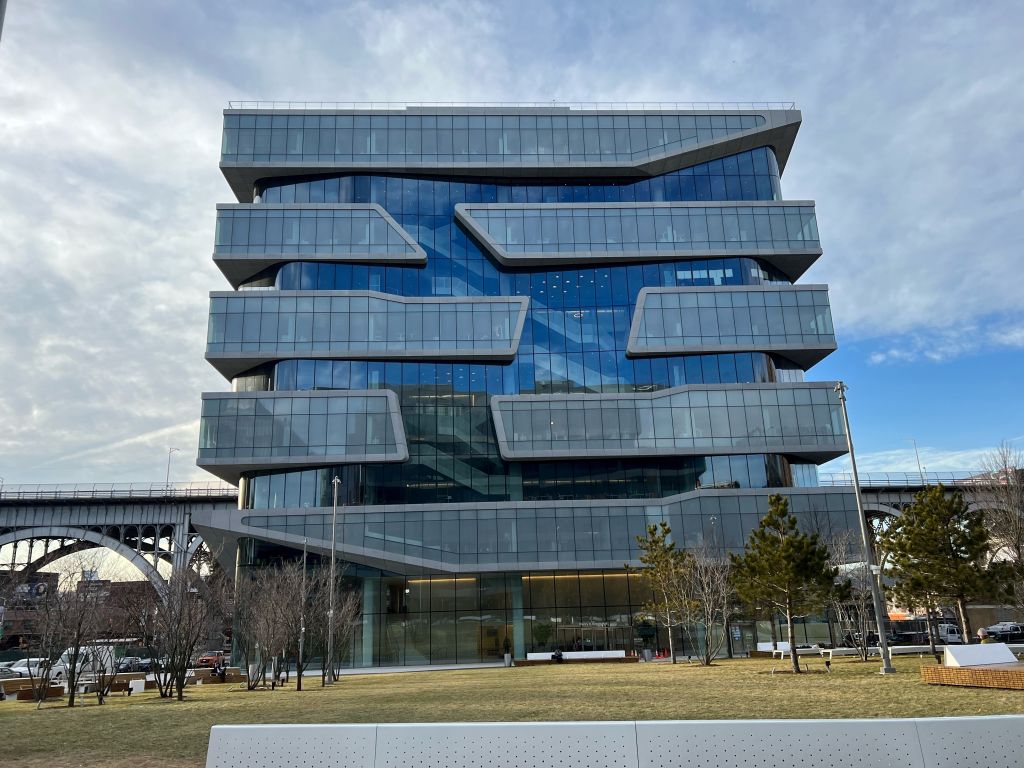
Christian Sofilkanitsch, Postdoc from Paderborn University, spent 4 months at Columbia Business School as part of a TRR 266 research stay abroad.
A significant reason to choose Columbia Business School was the great faculty and fundamental work its researchers have published in the area of financial restatements, e.g. by Shiva Rajagopal in his co-authored paper Chakravarthy et al. (2014) “Reputation Repair After a Serious Restatement”. This is one of my primary interests and an area that I desire to contribute further to with my own research. Moreover, the Columbia Business School is in Manhattan, allowing for many intercultural exchanges.
During my stay I participated in brown bag seminars, research seminars, and reading groups and audited a PhD class held by Shiva Rajgopal. I highly benefited from all of these and have received further insights into evaluating existing research in regards to its relevance and how to present research ideas. For example, some papers relate to accounting as well as to other areas (e.g., psychology). In these cases, it is crucial to emphasize the paper’s contribution to the accounting literature as subjects often overlap with different research areas.
From my perspective, there is much to gain from meeting other researchers with different backgrounds. These interactions can result in exchanging research ideas and meaningful suggestions for further revisions of one’s own work. They can even initiate joint projects together and long-lasting friendships!
The part I enjoyed most about being at Columbia Business School is the time to fully focus on research, interact with people from different fields, and meet researchers from other US schools at research seminars.
Victor Wagner
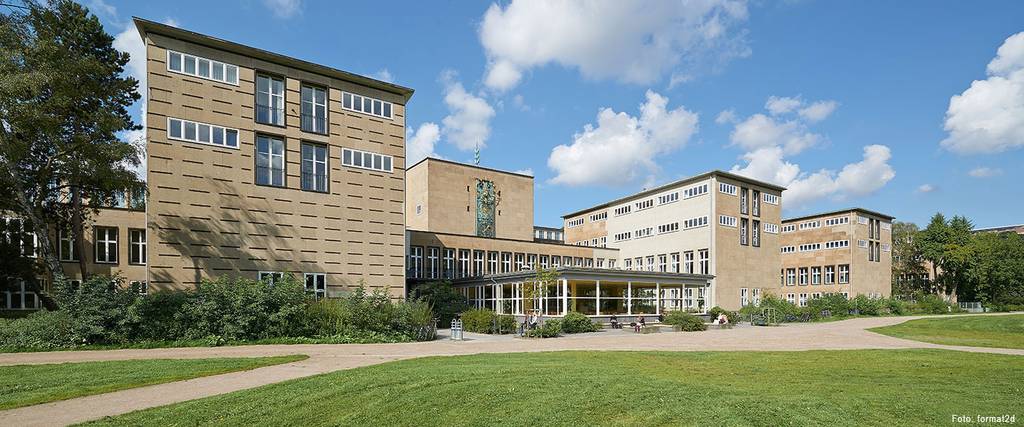
© Universität zu Köln
Victor Wagner, PhD student from LMU Munich, spent one month at the University of Cologne as part of the TRR 266 staff rotation program.
I visited the University of Cologne for one month to work on our joint project A07 on firms’ learning strategies. As I had already been working together with the colleagues from Cologne for quite some time, there was nearly no ramp-up time required to get started. During my stay, I especially benefitted from the direct personal exchange with my colleagues and the possibility to do research in a new setting.
While the time went by very quickly, I learnt that changing your surrounding – even for just one month – can make a big difference in terms of creativity and fresh perspectives. Experiencing a different way of work, eating in a different canteen and talking to new and diverse people quickly facilitated new ideas.
I can highly recommend the staff rotation program to everyone who wants to get inspired by and connect to the great people that are in the TRR 266. It was a great experience and I would surely do it again! Thanks to Maximilian Müller for hosting me and the TRR 266 team for the smooth organization!
Yuri Piper
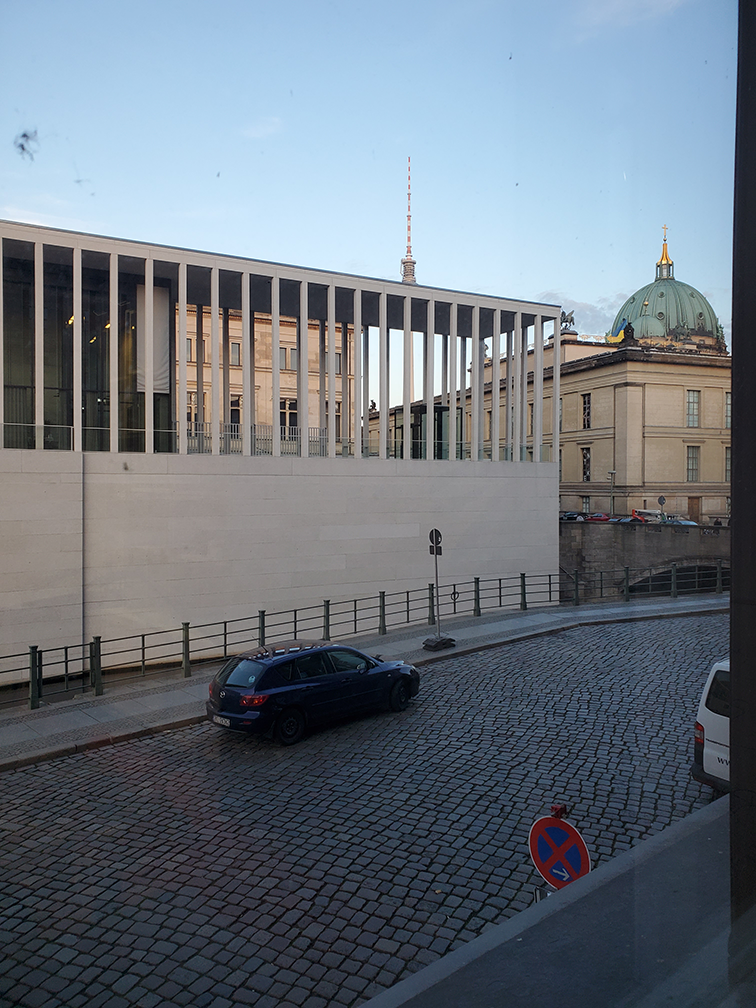
Yuri Piper, PhD student from Paderborn University, spent two weeks at HU Berlin as part of the TRR 266 staff rotation program.
I chose HU Berlin because my research project at that time as well as all of my currently planned projects are in collaboration with Ralf Maiterth (Principal Investigator in B08 at HU Berlin). Therefore, the staff rotation was a great opportunity to push forward our joint project. During my stay I took part in the local tax research seminar. It is an informal and regular exchange on the current status of research projects at the chair of Ralf Maiterth. The seminar provided a natural deadline for myself to advance my research project during my stay there. It was also very helpful to receive feedback not only from researchers who were already familiar with the project, but also from other doctoral researchers. Likewise, this was a good opportunity to learn more about the Berlin colleagues’ research projects and help them advance their work.
Even though my staff rotation was short, I learned a lot. I think one of the most valuable lessons is to take initiative: Nobody told or asked me to present in their local tax research seminar. It was rather on me to take part in these activities and it really pays off. This also applies to meetings with my mentor during that time – not only to talk about the current research project, but also about planned projects for the future.
The staff rotation program is a great opportunity to meet and get to know other researchers from the Collaborative Research Center and expand your professional but also your private network. Therefore, I can only recommend to join. The change of work environment really helps to gain fresh perspectives on your work. During my time in Berlin, the “Festival of Lights” took place right next to the office. On one evening, we met for afterwork drinks and enjoyed the light installations together. Generally, I really cherished all the afterwork talks and activities together with my two B08 colleagues as well as other doctoral researchers from HU Berlin.
Yuri even did a second, longer staff rotation for four months at HU Berlin to closely collaborate with his Berlin colleagues and drive their project forward.
During my second stay in Berlin, I started to work on a new B08 project for the second funding period. The project is about an online experiment in which we investigate public preferences for taxing wealth in relation to income in Germany. It is joint work with Ralf Maiterth from HU Berlin, who is one of the PIs in B08, and Cornelius Schneider from the University of Mannheim. I benefited a lot from the close exchange with my two B08 colleagues Karina Körösi and Leonie Babilas because they are working on online experiments as well. Also, the regular discussion with my co-author Ralf Maiterth really helped to kickstart this project in the over the last few months. My stay was also a great opportunity to network with colleagues from the Accounting Institute at HU Berlin. The discussions with them helped me a lot and have given me some new perspectives for my research.
The staff rotation was once again a great way to bond with my fellow PhD colleagues, also in my free time. My personal (non-work-related) highlight was a vacation with the TRR 266 PhD students from HU Berlin to Budapest.
Yuchen Wu
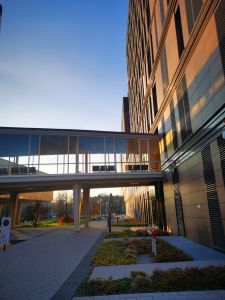
Yuchen Wu, Postdoc at LMU Munich, spent a few months at Frankfurt School of Finance & Management as part of the TRR 266 staff rotation program.
The team’s research at Frankfurt School is closely linked with my research interest and research data. Topicwise, many of the team’s researchers work on disclosure. Datawise, many team members there use data from the Bundesbank, just like I do. Therefore, it was only natural to go to Frankfurt and work together with the team on site.
During my stay I took part in the accounting research seminars. I participated when other people presented and also presented my own project. I received great constructive feedback for my project, which really helped me with my work. What was most valuable for me was to learn from other peer junior researchers and how they proceed with their academic work.
I would highly recommend a staff rotation to my colleagues. It really helped me to get together with other junior researchers and exchange feedback. Outside from work, I really enjoyed our team dinners together. Exchanging ideas and connecting with each other – academically and personally – really was the best experience of my stay.
Pia Stoczek
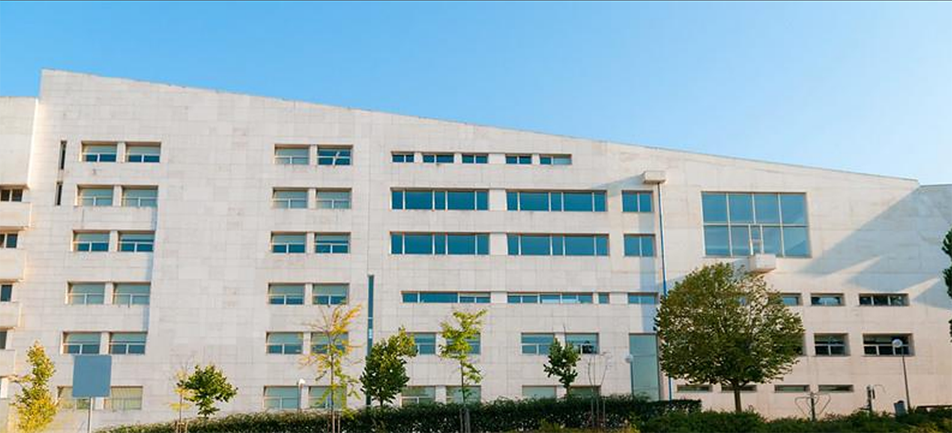
Pia Stoczek, PhD student at Paderborn University, spent a few months at ISCTE-IUL Business School in Lisbon as part of a TRR 266 research stay.
I chose to spend my three-month research stay at ISCTE-IUL Business School in Lisbon after Professor Helena Isidro presented her work at our TRR 266 research seminar at Paderborn University. As her research is (among others) in the area of debt markets – an area I am very interested in and which is the focus of my research –I chose ISCTE to benefit from her feedback for my work. During my stay I was able to participate in the research seminars of the ISCTE-IUL Business Research Unit and also had the opportunity to present my work at one of the workshops. The discussions and feedback I received really helped me to gain new perspectives and progress with my work.
During my stay I learned a lot about the differences in PhD education between European Universities. I got in touch with other PhD students at ISCTE and we bonded over our mutual motives and struggles. Getting out of my comfort zone and living and working in another country where I did not speak the language was an extremely valuable experience.
I would absolutely recommend a stay at ISCTE-IUL to colleagues. In case you want to participate in the PhD courses I would recommend a visit between October and March as most courses were already finished when I arrived. The upside of this for me was that I had time to solely focus on my research without a lot of distractions. Lisbon is a great city and offers a lot of activities for the weekend but you should plan some time to get accustomed. My best experience during the stay were definitely the lunch or coffee breaks with colleagues on, or off campus, sitting in the sun and exchanging ideas.
Tobias Witter
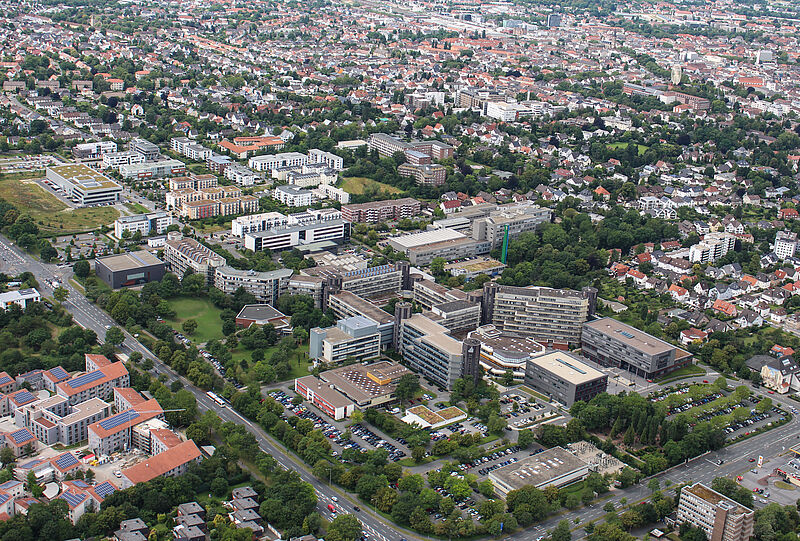
Tobias Witter, PhD student at HU Berlin, spent a few months at Paderborn University as part of the TRR 266 staff rotation program.
Through our research project B04 I was already collaborating with colleagues from Paderborn. I had heard a lot of great things about the encouraging working environment, so it was great to have the opportunity to directly experience the team and research environment myself. I was especially curious to see how a different organizational structure works – in contrast to my home institution Paderborn University has a departmental structure including a taxation, accounting and finance department. The structure definitely benefited my research: I was directly connected to tax and finance researchers, and oftentimes researchers working on very different topics dropped by my office to discuss research.
I participated in research and brown bag seminars as well as team meetings and a final presentation of the results of a project-based course. Reflecting on all these interactions I realized how important it is to make time for in-person discussions. Being physically present at the department helped me really getting to know the team and especially fellow PhD students from Paderborn University. Especially the spontaneous exchanges with colleagues and guests felt great after a 1.5-year period of permanently working online.
The departmental structure was not the only difference in structure I noticed, there was also a physical structure difference: the buildings. Almost all buildings at the campus are connected, meaning that when it’s raining outside you can keep dry by navigating indoors. However, it took me the full length of my 5-month stay to master this navigation, or should I say labyrinth.
Jonas Wessel
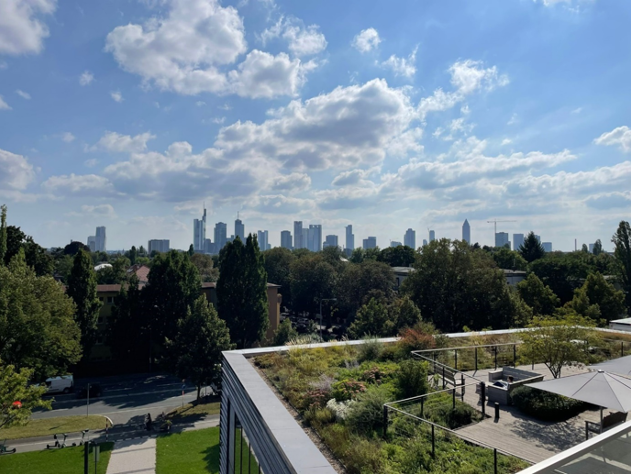
Jonas Wessel, PhD student at Oldenburg University, spent a few months at Frankfurt School of Finance & Management as part of the TRR 266 staff rotation program.
Meeting new people and expanding my research network was my main motivation to participate in the staff rotation. An excellent research environment with a well-structured PhD coursework program as well as good access to data made me decide to make Frankfurt my home for a few months. As a visiting PhD student I was able to participate in weekly Accounting and Finance Research Seminars as well as weekly internal Brown Bag sessions. At one of the Brown Bag sessions I presented my joint research project with Prof. Katharina Hombach and Prof. Sara Bormann, the feedback we received really helped me move forward with my research.
My research stay made me realize how important a good research network is: feedback is invaluable. I especially realized that it is better to start collecting feedback at an early stage, instead of working on a project all by myself – continuous exchange and feedback is what makes the difference.
I will definitely miss the summerly dinners and coffee breaks on the terrace with fellow PhD students: interesting discussions were pleasantly accompanied by a great view of the skyline of Frankfurt. I am looking forward to seeing them and other researchers from Frankfurt School at future (TRR 266) conferences and events again: the view might not be as inspiring, but the exchange will definitely be.